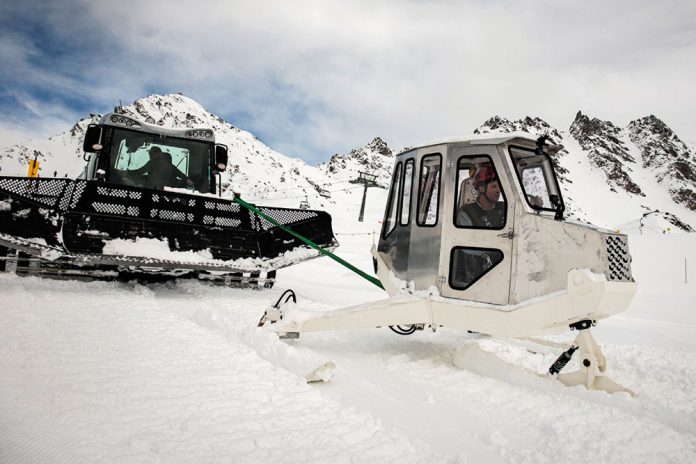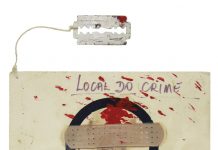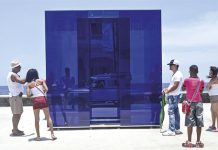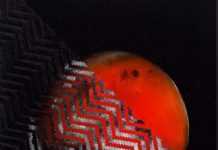Can a highly elitist city, frequented basically by billionaires of the international circuit, where even the average Swiss citizen has no access, host a meeting of contemporary art?
The challenge is faced by the Verbier Art Summit (VAS), which had its third edition held on last February 2 and 3. The event was created by a group of residents and owners of chalets of the small town of three thousand inhabitants. What not lack there are famous millionaires such as the singer Barbra Streisand, the businessman Richard Branson, the collector Dakis Joannou and the Prince Andrew of England, who three years ago paid no less than R$ 65 million for a seven-bedroom cabin . Exaggeration gives the tone of the place, where a drink can cost R$ 25 thousand in the VIP parties of the city.
Since 2017, the VAS, led by the Dutch lawyer Anneliek Sijbrandij-Schachtschabel, consists of a two-day meeting hosted by a guest curator. The first was Beatrix Ruf, then director of the Stedelijk Museum, last year Daniel Birnbaum of the Museum of Modern Art in Stockholm, and now Jochen Volz, director of the Pinacoteca of the State of São Paulo.
For two days in the afternoons, the team he had chosen presented themselves in an auditorium with free entrance for enrollees, while in the morning in the sophisticated wooden chalets of the organizers, selected groups debated with the guests, meetings where journalists were not allowed. The exhibition of the movie The Midday Red was also included in the program, a movie by Swiss artist Tobias Madison in São Paulo, in collaboration with Grupo Mexa, which shocked the audience by portraying a very decadent city, and the test of mobile sculpture by the English artist James Capper in the midst of the ski resort.
With the theme We are many. Art, the political and multiple truths and a very radical team, among them, the Cuban artist Tania Bruguera, the Portuguese sociologist Boaventura de Souza Santos, the Brazilian indigenous leader Nadine Terena and the South African curator Gabi Ngcobo, Volz repositioned the elitist event in an elegant way. “I have been completely free to organize the tables, I have invited people that I greatly admire”, said Volz in Verbier. Some of the selected artists such as Bruguera, Grada Kilomba and Rirkrit Tiravanija will be part of the program of the Pinacoteca, now in 2019. On June 22, the book with all the lectures will be released at the Pinacoteca.
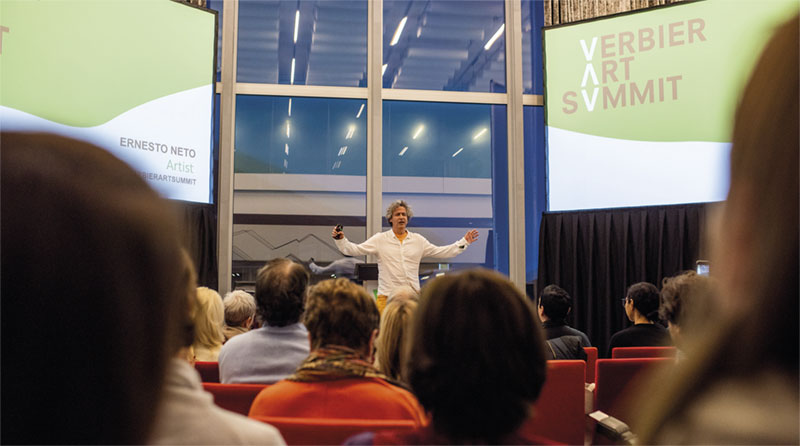
“We need to get down from the mountains to get to the mud”, said the Brazilian curator living in Brazil at the opening of the event, still under the impact of the Brumadinho dam burst just a few days before the Summit opened. It was a poetic and direct talk of how the art debate should not be restricted to a mere encounter but deserves to provoke concrete actions.
Following Volz’s departure, many of the guests sought to reconfigure the auditorium where the meeting took place, as to alter power structures. That was what she did in the first session Kilomba, who left the pedestal selected for the speakers, preferring to talk in a more informal way. “To unlearn is also to change spaces”, defined the Portuguese artist, who participated in the 32nd. Biennial of São Paulo in 2016. She presented scenes in Switzerland of her latest work, Illusions 2, a deconstruction of the Oedipus myth, created for the 10th Berlin Biennale last year.
The general tone followed in political reflections, as did Terena, who approached the threats to the 800 thousand Indians living in Brazil and began hes speech paraphrasing the president of the Sossego samba school: “Art is not for cowards”. For her, “the greatest art of indigenous people is to stay alive, it is resistance”.
Resistance was also the theme of Ngcobo’s talk about experiences of anti-apartheid movements in South Africa in the 1970’s, and how young artists are currently updating the issues of that period.
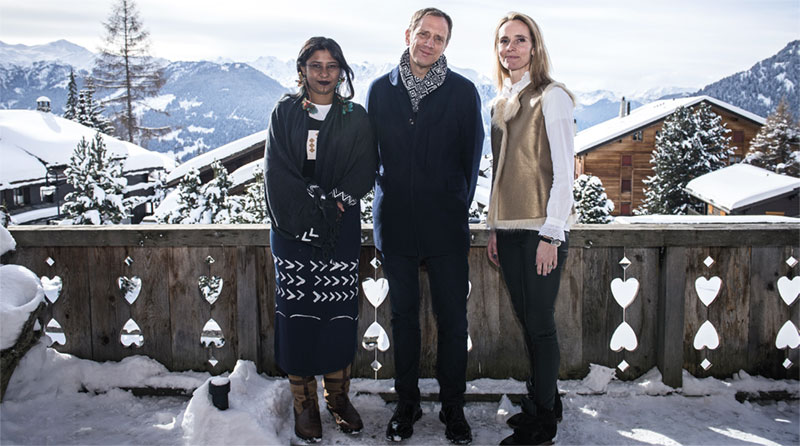
Santos, on the second day, in a speech that approached issues related to the defense of human rights, stated that he is participating in movements against the indiscriminate use of agrochemicals in Brazil. “There are many more people with cancer in the interior of São Paulo because of the poisons spread by agribusiness”, he provoked.
A frequent figure in Verbier, due to a music festival taking place in the city, the singer Barbara Hendricks, ambassador of Acnur (UN High Commissioner for Refugees) made a defense of art as an empowering element.
Finally, the Thai artist Tiravanija rethought the space of the meeting in a radical way: he descended to the audience and suggested that each one change the organization of the chairs, not being all facing the stage. On the gloom light, he asked the audience to watch his own breathing for ten minutes. In the end, he asked everyone to say something from the experiences of the two days in Verbier, generating some tension, after all it was a speaker who chose not to speak. There were those who, after such political contests, proposed that the group should have some concrete action, while others, like Gabi Ngcobo, instead of talking, played the song “We don’t need another hero”, famous in the voice of Tina Turner, which was the title of the Berlin Biennial, organized by her last year.
In this somewhat ironic environment, the silence of an artist like Tiravanija is a very coherent attitude with an event to discuss art in a city like Verbier. Art, in fact, is not for cowards.

